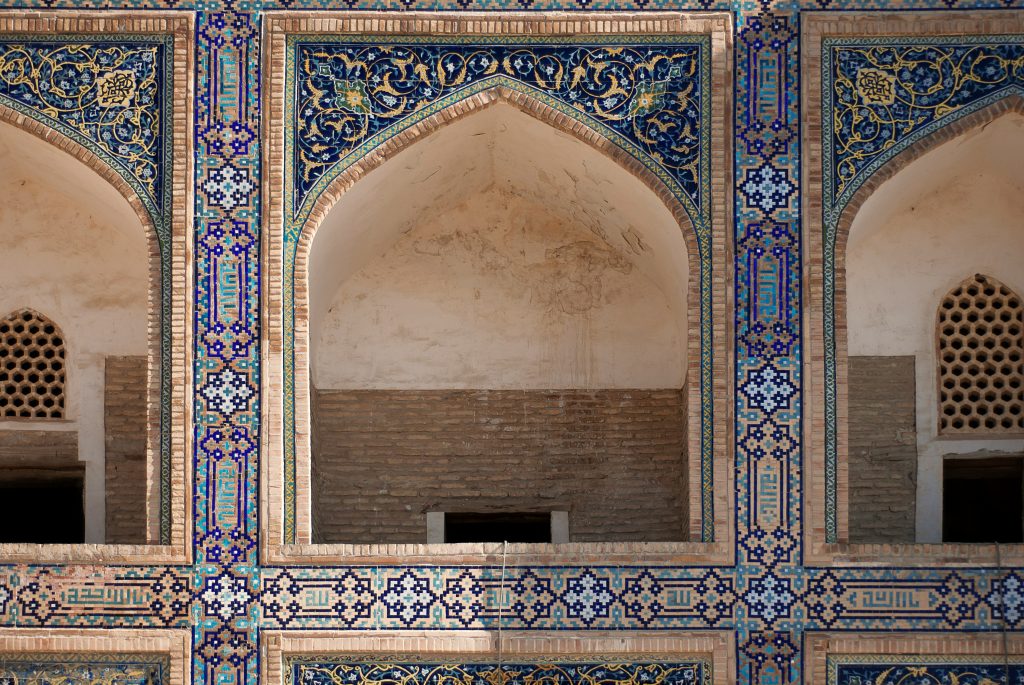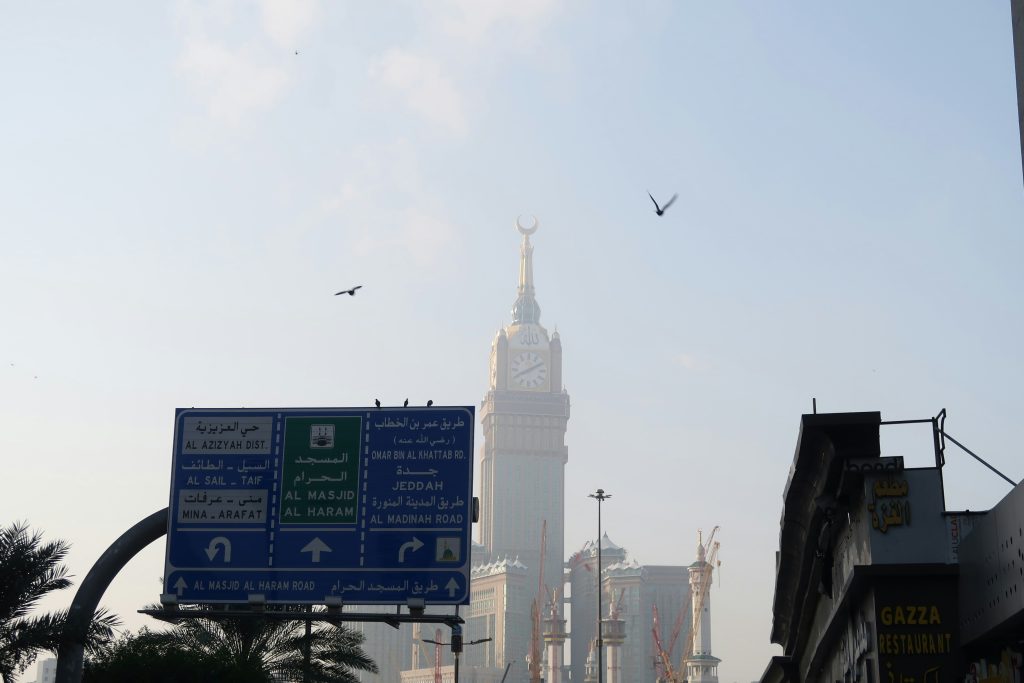Trump Nominates Mike Huckabee as Ambassador to Israel Amidst Ongoing Conflict
In a bold move amidst the ongoing conflict between Israel and Hamas, President-elect Donald Trump has officially nominated former Arkansas Governor Mike Huckabee as the United States ambassador to Israel. This decision has sparked a wave of reactions, highlighting Huckabee’s strong ties to the evangelical Christian community and his long-standing support for Israeli policies, particularly the annexation of the West Bank.
Huckabee’s nomination comes at a crucial time, as tensions in the Middle East have escalated, raising questions about U.S. foreign policy and its impact on regional stability. As a prominent figure within the Republican Party, Huckabee’s views align closely with those of many in the evangelical community, who view support for Israel as a moral imperative. His advocacy for Jewish sovereignty over disputed territories has been a hallmark of his political career, making him a polarizing figure in discussions surrounding the Israeli-Palestinian conflict.
The former governor’s history of supporting Israeli settlements in the West Bank has drawn both praise and criticism. Supporters argue that Huckabee’s approach reflects a commitment to Israel’s security and legitimacy, while critics contend that his views could exacerbate tensions and hinder peace efforts in the region. As ambassador, Huckabee is expected to advocate for policies that promote Israel’s interests, potentially reshaping U.S. relations with Palestinian leadership and other Middle Eastern countries.
In addition to Huckabee’s nomination, Trump has also appointed businessman Steve Witkoff as his special envoy to the Middle East. This dual appointment signals an aggressive strategy aimed at reinforcing U.S. support for Israel during a time of heightened conflict. Witkoff’s experience in business and real estate may offer a unique perspective on economic development in the region, although his lack of diplomatic experience raises questions about the effectiveness of his role.
The implications of Huckabee’s nomination extend beyond bilateral relations between the U.S. and Israel. It reflects a broader shift in American politics, where evangelical Christians have increasingly influenced foreign policy decisions. Huckabee’s appointment may signal to the international community that the U.S. is firmly aligned with Israel’s policies, potentially alienating other nations and complicating efforts to broker peace.
As the world watches the unfolding dynamics in the Middle East, Huckabee’s nomination will undoubtedly be scrutinized. His ability to navigate the complexities of the role will be critical, especially in light of the ongoing violence and humanitarian crises in the region. The ambassador’s stance on key issues, such as settlement expansion and Palestinian rights, will play a significant role in shaping U.S. foreign policy moving forward.
In conclusion, Mike Huckabee’s nomination as ambassador to Israel underscores the intertwining of faith and politics in contemporary America. His deep-rooted beliefs and unwavering support for Israeli sovereignty present both opportunities and challenges for U.S. diplomacy in the Middle East. As the Trump administration prepares to take office, the world eagerly anticipates how these appointments will influence the future of American-Israeli relations and the broader quest for peace in the region.
Tags: ambassador, Huckabee, Israel, Middle East, Mike Huckabee, Trump
Iran Launches Ballistic Missile Attack on Israel: Tensions Escalate in the Middle East
In a significant escalation of hostilities in the Middle East, Iran launched a large-scale ballistic missile attack on Israel, firing approximately 180 missiles in a coordinated strike. This unprecedented assault has sent shockwaves through the region, raising fears of further conflict. Despite the scale of the attack, Israeli defenses, notably the Iron Dome missile defense system, managed to intercept many of the incoming threats, resulting in minimal casualties and damage. However, the psychological impact on the Israeli populace has been profound, with a palpable sense of anxiety permeating the nation.
Israeli officials have responded with stern warnings, indicating that Tehran will ‘pay for its actions.’ Prime Minister Netanyahu has vowed to retaliate, stating that Iran has committed a grave error in launching such an attack. The rhetoric from Israeli leadership suggests a possible military response that could escalate tensions even further.
The missile attack comes amid ongoing skirmishes between Israeli forces and Hezbollah fighters in Lebanon, with both sides engaged in ground fighting. This multi-front conflict raises concerns about the potential for a wider regional war, as various factions become involved. The situation is being closely monitored by international observers, who fear that any miscalculation could lead to a catastrophic escalation.
Analysts note that this attack represents a new phase in the ongoing conflict between Iran and Israel, characterized by more advanced weaponry and a greater degree of coordination among Iranian military factions. The attack’s complexity raises questions about Iran’s military capabilities and its intent to assert dominance in the region.
As the dust settles from this latest confrontation, the world watches closely. The Iranian government has indicated that it views this strike as a necessary demonstration of power, while Israeli officials prepare for potential retaliatory actions that could set off a new round of violence. Both nations remain locked in a cycle of aggression and retaliation, with no clear path to de-escalation in sight.
In light of these developments, it is crucial for global leaders to engage in diplomatic efforts to prevent further escalation. The potential for a broader conflict involving multiple nations in the region is a pressing concern, necessitating a coordinated international response to stabilize the situation.
Tags: Iran missile attack, Middle East, Military Tensions
Escalating Tensions: Israel’s Ground Incursion into Lebanon Amid Iranian Missile Strikes
In a dramatic escalation of hostilities, the Israeli military has launched a significant ground incursion into southern Lebanon, coinciding with a barrage of missile attacks from Iran targeting Israeli territories. As air raid sirens blared across Israel, citizens rushed to bomb shelters, witnessing the ominous sight of missiles streaking through the night sky. This troubling development marks an alarming turn in the ongoing conflict, raising fears of a broader regional war involving two of the Middle East’s most formidable military powers.
The Iranian missile strikes are reportedly a response to Israel’s intensified military operations against Hezbollah, a militant group in Lebanon long supported by Tehran. In recent weeks, Israeli forces have engaged in what they describe as ‘limited incursions’ aimed at dismantling Hezbollah’s military capabilities, which have been a persistent threat to Israeli security. The Israeli military’s operations have drawn sharp condemnation from Iran, prompting Tehran to vow a retaliatory response.
Israeli officials have made it clear that a ‘significant retaliation’ is forthcoming, as the nation grapples with the implications of the Iranian attacks. Prime Minister Benjamin Netanyahu has asserted that Iran will ‘pay for’ its aggressive actions, signaling a commitment to defending Israel’s sovereignty at all costs. The strategic coordination between the U.S. military and the Israeli Defense Forces during these tensions highlights the international ramifications of the conflict, with the Pentagon closely monitoring the situation.
The current crisis is reminiscent of the monthlong war that erupted in July 2006, where Israeli forces found themselves entangled in fierce battles against Hezbollah, leading to substantial casualties on both sides. Experts warn that the ongoing military engagements could spiral into a wider conflict, particularly if Iran continues its missile assaults. As the situation continues to evolve, military analysts are closely watching the developments, assessing the potential for a broader confrontation in the already volatile region.
The implications of these events extend beyond military might; they raise critical questions about regional stability and the potential for civilian casualties amid the escalating violence. The humanitarian impact of such conflicts often bears heavy consequences, prompting calls for urgent diplomatic interventions to de-escalate tensions.
As the Israeli military prepares for further operations, it remains to be seen how Iran will respond and whether this latest round of hostilities will lead to an all-out war in the Middle East. The international community watches with bated breath, as the fragile balance of power hangs in the balance, and the specter of a larger conflict looms ever closer. With both nations bracing for a protracted struggle, the stakes could not be higher, and the quest for peace seems more elusive than ever.
Tags: Hezbollah, Iran, Israel, Israel news, Middle East, Military Operations
Hezbollah Leader Targeted in Israeli Airstrike: A Turning Point in the Lebanon Conflict
In a significant escalation of hostilities in the region, the Israeli military launched a series of airstrikes targeting Hezbollah positions in southern Beirut late Friday. This military action comes amid rising tensions and ongoing conflict, with reports indicating that the strikes aimed at a central command post of Hezbollah, a powerful political and military force in Lebanon led by Hassan Nasrallah since 1992. The airstrikes prompted urgent evacuation orders for residents in the affected areas, highlighting the immediate dangers faced by civilians caught in the crossfire.
Eyewitnesses reported a series of explosions that rattled the southern suburbs of Beirut, with buildings reportedly reduced to rubble as Israeli warplanes executed their operations. The strikes are said to have focused on an underground bunker used by Hezbollah, further illustrating the group’s strategic military infrastructure within civilian neighborhoods. Israeli officials claimed the operation was a preemptive measure following intelligence reports suggesting that Nasrallah was present at the location during the attack.
Hassan Nasrallah, a controversial figure in the Middle East, has played a pivotal role in shaping Hezbollah into a formidable entity with significant influence both politically and militarily. His leadership has been marked by a steadfast commitment to resistance against Israeli forces, often drawing Lebanon into broader regional conflicts. The recent airstrike, which reportedly resulted in casualties, has raised questions about the future of Hezbollah’s operations and its response to these provocations.
Analysts suggest that the assassination of key figures like Nasrallah could change the dynamics of the conflict, with some arguing that it may inadvertently strengthen Hezbollah’s resolve and rally support among its base. The group has historically thrived on narratives of resistance and martyrdom, and the loss of its leader could be framed as a rallying cry for its supporters.
The ramifications of this airstrike extend beyond Lebanon, potentially influencing the geopolitical landscape across the region. As Israel continues to assert its military capabilities, the response from Hezbollah and its allies will be crucial in determining the next steps in this ongoing conflict.
As the situation develops, the international community watches closely, aware that escalations in Lebanon can have far-reaching consequences, potentially igniting wider regional instability. The humanitarian implications are also dire, with civilians at risk as military operations unfold in densely populated urban areas. The calls for evacuation underscore a growing concern for the safety of innocent lives amid the chaos of war.
In summary, the recent Israeli airstrikes targeting Hezbollah and its leader mark a critical juncture in the Lebanon conflict. With significant implications for both local and regional stability, the world remains on edge, awaiting the next move from both Israeli forces and Hezbollah in a volatile and unpredictable landscape.
As tensions escalate, the need for dialogue and conflict resolution becomes increasingly urgent, with many advocating for measures to protect civilians and seek a de-escalation of hostilities in the region.
Tags: Hezbollah, Israel, Middle East, Military Action, Nasrallah
Hezbollah Leader Hassan Nasrallah Reportedly Killed in Israeli Airstrike
In a dramatic escalation of conflict in the Middle East, Israeli airstrikes targeted key locations in southern Beirut on Friday evening, resulting in the reported death of Hezbollah’s Secretary-General, Hassan Nasrallah. The strikes were aimed at Hezbollah command posts, which have been a focal point of the group’s military operations against Israel. The Israeli military instructed residents in parts of Beirut’s southern suburbs to evacuate, indicating the severity of the situation.
Hassan Nasrallah, who has led Hezbollah since 1992, transformed the organization into a formidable political and military force within Lebanon and the region at large. Under his leadership, Hezbollah became not only a significant player in Lebanon’s political landscape but also a key actor in regional conflicts, often positioning itself against Israel. The Lebanese group has been involved in various confrontations, including the 2006 Lebanon War and ongoing tensions related to the Syrian Civil War.
The Israeli airstrike reportedly struck an underground bunker that Hezbollah maintained in a residential area, raising concerns about civilian casualties and the potential for further escalation. Israeli officials justified the attack as a necessary action to dismantle Hezbollah’s operational capabilities, claiming that the group poses an ongoing threat to national security. This incident marks a significant moment in the ongoing hostilities between Israel and Hezbollah, underscoring the precarious balance of power in the region.
While the immediate impact of Nasrallah’s reported death remains to be seen, analysts suggest that it could have profound implications for Hezbollah and Lebanon as a whole. Some experts believe that his death could either destabilize the group or, conversely, galvanize support for Hezbollah among its loyalists, further entrenching its role in Lebanese politics.
The situation remains fluid, with both the Israeli government and Hezbollah likely to respond in the coming days. As regional tensions escalate, the international community watches closely, concerned about the potential for broader conflict that could spill beyond Lebanon’s borders. The developments in Beirut highlight the fragile state of peace in the region and the complex interplay of local and international forces that continue to shape the Middle East’s geopolitical landscape.
Tags: Airstrike, Hassan Nasrallah, Hezbollah, Israel, Middle East
Stalemate in Gaza Negotiations: Urgency for Ceasefire Intensifies
As tensions in the Middle East remain high, the ongoing negotiations surrounding a potential ceasefire between Israel and Hamas have reached a critical impasse. U.S. President Joe Biden is intensifying his efforts to encourage a resolution, emphasizing the urgency of reaching a deal that includes the release of hostages held by Hamas. Israeli sources have indicated that Biden’s comments could be perceived as a ‘gift’ to Israeli Prime Minister Benjamin Netanyahu, potentially undermining the prospects for fruitful negotiations.
The complexities of the situation are further compounded by Netanyahu’s insistence that Israeli forces remain deployed along the Gaza border, a demand that has emerged as a significant obstacle in talks with U.S. negotiators. The insistence for military presence reflects Netanyahu’s broader security concerns but also adds layers of difficulty to the already intricate negotiation process.
In the shadows of these discussions lie the hostages, many of whom have been held in Hamas tunnels for over ten months. Their plight has not only stirred public sentiment but has become a crucial element in the overarching narrative of the conflict. Humanitarian advocates are increasingly vocal about the urgent need for their safe return, and the hostages have become emblematic of the human cost of the ongoing strife.
As negotiations stall, both sides are under pressure. The international community is closely monitoring the situation, with calls for immediate action growing louder. Biden’s administration is keen to facilitate a ceasefire that would pave the way for humanitarian aid to flow into Gaza, which has been severely affected by the ongoing conflict. The U.S. is striving to balance its support for Israel’s security while addressing the humanitarian crisis unfolding in Gaza.
Despite the urgency expressed by world leaders, the path to a ceasefire remains fraught with challenges. The dynamics of the conflict are complex, with deep-rooted historical grievances and ongoing violence complicating the prospects for peace. As the situation evolves, the focus remains on finding common ground that can lead to a resolution, with the hope that both sides can agree to a ceasefire that prioritizes the safety and dignity of all affected.
Tags: Ceasefire, Gaza, Hostages, Israel Netanyahu, Middle East
Saudi Crown Prince Faces Assassination Fears Amid Israel Normalization Talks
In a significant turn of events, the Saudi Crown Prince has expressed deep concerns regarding his safety as he navigates the delicate waters of normalizing relations with Israel. This decision, which could reshape the geopolitical landscape in the Middle East, is fraught with peril, particularly in light of the historical context of leaders who have undertaken similar steps. Reports indicate that the Crown Prince has drawn parallels to former Egyptian leader Anwar Sadat, who faced dire consequences for his peace efforts with Israel.
The Crown Prince’s apprehensions have been amplified by the ongoing conflict in Gaza, which has reignited anger and resentment toward Israel among the Arab populace. This situation places him in a precarious position, where any misstep could lead to severe backlash from both domestic and regional fronts. Despite these fears, he remains steadfast in his commitment to pursue the normalization agreement, which is reportedly tied to U.S. security guarantees and the potential establishment of a civilian nuclear program in Saudi Arabia.
Discussions with U.S. Congress members have underscored the complexity of this agreement, highlighting the need for clear concessions from Israel to alleviate the Crown Prince’s concerns. These negotiations are not just a matter of diplomacy; they represent a high-stakes gamble that could have lasting implications for Saudi Arabia and its role in the region.
As the Crown Prince weighs his options, the stakes resonate far beyond personal safety. The potential normalization of relations with Israel could alter the dynamics of the Arab-Israeli conflict, offering new opportunities for cooperation but also risking the ire of hardline factions within the Kingdom and across the Arab world. The Crown Prince’s attempt to foster a new era of relations is a bold move, yet it comes at a time when tensions are running high, and public sentiment is increasingly volatile.
Moreover, the Crown Prince’s strategy appears to be multifaceted, as he seeks to position Saudi Arabia as a pivotal player in the region, capable of navigating the complexities of international relations while maintaining internal stability. However, the path forward is laden with challenges, not least of which is addressing the fears of assassination that loom large over his head as he embarks on this transformative journey.
The world watches closely, as the implications of these discussions could reverberate throughout the region, impacting relationships between Arab states, Israel, and the broader international community. The Crown Prince’s resolve to push forward with normalization talks despite the risks speaks to his vision for a more integrated Middle East, though the road ahead remains uncertain. As events unfold, the Crown Prince’s ability to balance these competing pressures will be crucial in determining not only his fate but also the future of Saudi-Israeli relations and the overall stability of the region.
Tags: Assassination Fears, Israel, Middle East, Normalization, Saudi Arabia, Saudi Crown Prince Mohammed bin Salman
Rising Tensions: Iran’s Imminent Retaliation Against Israel Amidst Regional Unrest
As the geopolitical landscape in the Middle East becomes increasingly volatile, the specter of conflict looms larger following the assassination of Hamas leader Ismail Haniyeh. Iranian Supreme Leader Ayatollah Ali Khamenei, alongside senior military and political officials, has unequivocally stated that Iran will retaliate against Israel for its actions, escalating fears of a broader confrontation in the region.
Recent reports indicate that U.S. officials are closely monitoring the situation, interpreting military maneuvers in the vicinity as a clear signal directed at Iran. The U.S. stance reflects a growing concern over Iran’s potential military ambitions and its impact on regional stability. This heightened tension has drawn attention not only from Israel but also from international leaders who are now engaging in diplomatic efforts to calm the escalating crisis and advocate for a ceasefire.
The situation is further complicated by the ongoing internal strife within Israel’s leadership. Prime Minister and Defense Minister have publicly debated the objectives behind their military strategy in Gaza, with questions being raised about the feasibility of achieving a ‘total victory.’ This internal discord may embolden Iran, prompting a faster response as they gauge Israel’s resolve amid its leadership’s uncertainty.
In the midst of these developments, Hamas has claimed responsibility for the deaths of an Israeli hostage and injuries to two others, intensifying the urgency of the situation. The White House has issued warnings about the potential for an imminent Iranian attack against Israel, underscoring the precarious nature of the current standoff.
As the clock ticks, both Israel and Iran are poised for confrontation, with military preparations underway on both sides. Israeli Defense Minister Yoav Gallant has communicated to U.S. Defense Secretary Lloyd Austin that signs indicate Iran is gearing up for a large-scale assault, a claim that amplifies concerns among U.S. and allied forces in the region.
With international leaders rallying to mediate and reduce tensions, the possibility of a diplomatic resolution hangs in the balance. However, the recent actions and statements from both Iranian and Israeli officials suggest that both nations are preparing for the worst. The world watches closely as the potential for conflict in the Middle East escalates, raising critical questions about the future of peace and security in this volatile region. As the region stands on the brink, it remains to be seen whether diplomacy can prevail over the drums of war, or if the situation will spiral into a larger conflict that could engulf the entire region.
Tags: Iran attack Israel, Iran attack Israel Israeli, Iran-Israel Relations, Middle East
Iran Vows Retaliation: Rising Tensions with Israel as Assassination Sparks Threats of War
In a dramatic escalation of tensions in the Middle East, Iran has publicly vowed to retaliate against Israel following the assassination of Hamas leader Ismail Haniyeh in Tehran last week. This incident has sent shockwaves through the region, as both nations brace for potential conflict. Reports indicate that Iran is preparing for a significant response, which could involve coordinated attacks alongside Hezbollah, its ally in Lebanon. Israeli citizens are on high alert, anticipating possible strikes from Iranian forces. The situation is further complicated by the fact that Iran’s military capabilities have evolved since its last direct assault on Israel in April, when it launched nearly 350 drones and missiles in a failed attempt to breach Israeli defenses. Experts suggest that the current climate is markedly different, with Iran seemingly more emboldened and willing to leverage its military assets. As international observers watch closely, the dynamics between moderate Sunni states and their interest in countering Iran’s influence are also in play. While these nations may seek to weaken Iran, the possibility of forming a lasting coalition with Israel remains uncertain. The specter of war looms large over the region as diplomatic efforts struggle to keep pace with the rapidly escalating threats. The implications of such a conflict could extend beyond the immediate parties involved, potentially drawing in global powers and destabilizing the entire Middle East. As both sides prepare for what could be a pivotal moment in their ongoing hostilities, the world waits with bated breath for the next move in this high-stakes game of geopolitics.
Tags: Hamas, Hezbollah, Iran, Iran attack Israel Israeli, Israel, Middle East
Iran Vows Retaliation Against Israel Following High-Profile Assassination
In a stark escalation of tensions in the Middle East, Iranian President Masoud Pezeshkian confirmed on Monday that Tehran would “definitely” retaliate against Israel for the assassination of Hamas leader Ismail Haniyeh. This declaration comes on the heels of a series of high-profile assassinations that have sent shockwaves throughout the region, compelling numerous factions to reassess their strategies and alliances.
The assassination of Haniyeh, carried out under suspicious circumstances widely attributed to Israeli operatives, has intensified fears of a broader conflict. Israeli leaders have openly acknowledged the possibility of an Iranian-led retaliation, heightening security measures and preparing military defenses amidst fears of an impending strike.
The situation is compounded by the scheduled meeting at the Organization of Islamic Cooperation (OIC) headquarters in Jeddah, Saudi Arabia, where discussions on a unified response to Israeli actions are expected to take center stage. As regional militias and allied factions express solidarity with Iran, the potential ramifications of a coordinated response could reshape the geopolitical landscape.
Analysts agree that Iran’s options for retaliation are limited, yet the Islamic Republic has vowed to exercise its “legitimate” right to defend itself. The Iranian leadership is under immense pressure to respond decisively to bolster its credibility both domestically and internationally. With regional tensions at a boiling point, the stakes have never been higher.
In the past week alone, the Middle East has been rocked by two significant assassinations. The first was of Fuad Shukr, a senior commander of Hezbollah, which has drawn the ire of Iranian officials and underscored the ongoing threats faced by allied groups in the region. These events have led to a call for unity among militant factions, as they navigate the complex web of alliances and enmities that characterize Middle Eastern politics.
As the clock ticks and the potential for retaliation looms, the international community watches closely, aware that any miscalculation could lead to widespread conflict. The specter of war hangs heavy in the air as Iran and Israel remain locked in a deadly game of brinkmanship, with both sides preparing for the worst.
In conclusion, the assassination of Haniyeh has not only reignited the longstanding animosity between Iran and Israel but has also mobilized various factions within the region to consider their positions in an increasingly volatile environment. With the OIC summit approaching and the threat of retaliation looming, the next steps taken by Iran and its allies will be critical in determining the future stability of the Middle East.
Tags: Hamas, Iran, Iran retaliation Israel, Israel, Middle East, Retaliation










